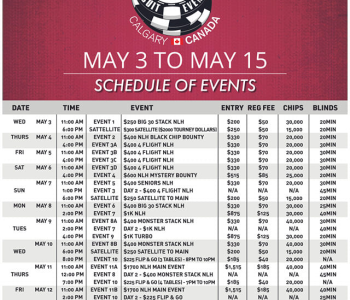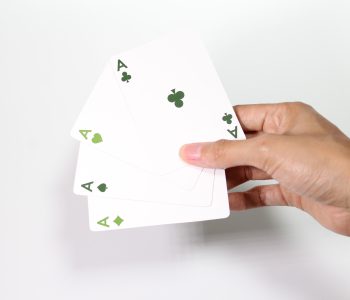
Major poker blunders
Let’s look at some of the most common errors that gamers make.
Here are nine key blunders that cause difficulty in the game and, as a result, large losses:
No. 1:Obsession with Blind Defense
Many gamers guard their blinds fiercely. They let their ego make the decision for them. Others argue that by posting a blind, they have already committed a significant amount of money and do not want to squander it. Defending the blind with bad cards is bad for your bankroll. You will only stay in the black if you maintain discipline and discard poor cards. You will preserve your chips first, and then you will make blind stealers do it more often, but if you have a strong card, you may surprise them by enticing them into a trap.
No. 2: a little fold
For example, you often limp into the game and then invariably call someone’s raise. Here’s another example. There was a raise, you phoned, and then there was another, and you called again. Such a game will not end well. If you have cards in your hand that you absolutely must enter the draw with, you may do so with a raise. Otherwise, just pass and wait for the proper card to appear. Patience and discipline, as well as aggressiveness, must constantly be present at the poker table in order to accomplish the required profit.
No. 3 is almost on its side.
We’re all aware that a circumstance might arise at the table that will irritate you. This is quite common with aggressive and temperamental athletes. Some players believe it is difficult to irritate them, but this is not the case. Semi-tilt occurs when a player is not yet on tilt and in total control of his game, but is on the edge of doing so. To avoid this hazard, you must constantly maintain control of your game and watch your mental condition. Your aim is to be vigilant at all times and avoid being provoked by other players.
No. 4: Fantasy Game Syndrome
Many years ago, poker journalist Mike Caro invented the moniker “Fancy Play Syndrome,” or FPS. However, it is still applicable today. A typical example of an FPS is a huge loss in a hand when you had a monster on the flop but offered your opponent tremendous opportunities to smash the nuts on subsequent streets due to your poor play. This often occurs when you underestimate your opponent.
No. 5: Starting with tiny pairs in early position
When you see a little pair, you typically overplay it in the hopes of hitting a set or perhaps a car. There are various issues with these early position pairings. How often will you gather a set? We will not provide an answer on purpose, since you should be aware if you have studied the preceding lectures. Forgot? Then you should go back and re-examine the situation. It’s also worth remembering that we’re talking about the game at a full table here. If you’re playing heads-up, a pocket pair is always an excellent opening hand.
No. 6: Table Design
Many of you have undoubtedly heard the saying “If you couldn’t figure out who the fish is in the first ten minutes of the game, then this fish is you”! But how do you do it? You must observe your opponents to see who makes errors and who does not. Fortunately, you can accomplish this before you even sit down at the table. Have you heard the one about the tenth greatest Texas hold’em player? His only blunder was that he always played with the world’s top eight players. Don’t fall for the ruse. The poker school advises researching your opponents in order to determine their skill level and choose the most lucrative game for you.
No. 7: a reluctance to go to the next level
Beginners who want to become excellent poker players constantly concentrate on solid opening cards, play a limited amount of hands, and practice discipline. They are excellent beginnings, but we must progress. To advance to a higher level and eventually become a professional, it is required to do more than just study books. Because poker is a game of chance, you don’t need strong cards to win; you just need better cards than your opponent. Even doubling the wager a few times will sometimes cause your opponent to fold excellent hands. A solid posture is essential for a fruitful opportunity. You can steal the blinds or play this or that hand smartly from a favorable position.
No. 8: Refusing to fold a bad hand
Here’s a basic illustration. Assume you flip two pairs, but the flop is suited, and the turn card is also of the same suit. The opponent’s actions indicate that he has a flush and attempts to steal a large number of chips from you. What if the hypothetical straight ended at the turn? What are your outs for a full house? Is it worth spending a lot of money to attempt to capture him? This is a typical error made by newcomers. It is preferable to wait for a more stable scenario and win a large sum.
No. 9: Probability and mathematics
Once you’ve resolved to play poker successfully and are certain that you want to make money, you must drastically improve your mathematical efficiency. Most players are accessible at the ordinary level, and have the typical chances of incomplete combos like straights and flashes; if you don’t know this, make a mental point to learn it. Return to the pot odds lesson and reread it until you understand everything. Understanding this principle is critical for winning at poker.
If you can honestly declare that none of these mistakes apply to you, it won’t harm to mimic you at the poker table. Everyone makes errors in their own unique style, and you should keep this in mind as you work to better your game. If you find yourself in such situations, there is an opportunity to become conscious and rise beyond the manifestation of the part of the game.









